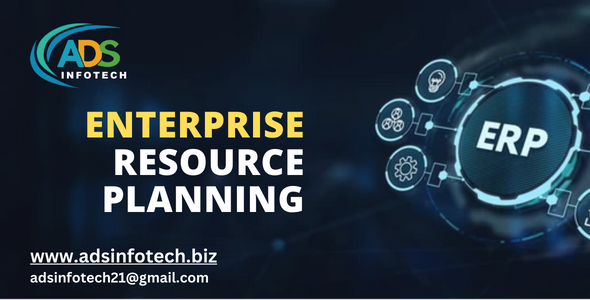
Enterprise Resource Planning
(ERP) refers to the management of business processes using software systems
that integrate all aspects of a company's operations, including finance, human
resources, manufacturing, supply chain management, and customer relationship
management. The goal of ERP is to streamline business processes and increase
operational efficiency, reduce costs, and improve overall productivity.
o
ERP systems are designed to
provide a centralized view of a company's operations, allowing managers to make
informed decisions based on real-time data. By integrating all aspects of a
company's operations into a single system, ERP eliminates the need for separate
systems and manual processes, reducing the risk of errors and improving data
accuracy.
o
One of the key benefits of
ERP is that it provides a single source of truth for all data related to a
company's operations. This allows managers to access real-time data on sales,
inventory, production, and financial performance, enabling them to make
informed decisions that can optimize business processes and improve
profitability.
o
Another advantage of ERP is
that it can automate many routine tasks, such as data entry, invoicing, and
inventory management. This reduces the need for manual intervention and frees
up staff to focus on more strategic tasks, such as customer engagement and
product development.
o
ERP systems can also help
companies manage their supply chain more effectively, by providing real-time
visibility into inventory levels, production schedules, and shipping status.
This allows companies to optimize their supply chain and reduce costs by
minimizing inventory levels and improving delivery times.
o
One of the challenges of
implementing an ERP system is the complexity of the project. ERP implementation
requires significant planning, resources, and expertise to ensure that the
system is configured correctly and meets the specific needs of the
organization. In addition, companies must train their staff to use the system
effectively, which can take time and resources.
o
Another challenge of ERP
implementation is the cost. ERP systems can be expensive to implement, requiring
significant investment in software, hardware, and consulting services. However,
the benefits of ERP can outweigh the costs in the long term, by improving
operational efficiency, reducing costs, and increasing profitability.
o
To overcome these
challenges, many companies are turning to ERP implementation partners who
specialize in ERP implementation and support. These partners have the expertise
and resources to help companies implement ERP systems quickly and efficiently,
while minimizing disruption to their operations.
In conclusion, Enterprise Resource Planning (ERP) is an essential tool for managing complex business operations in today's fast-paced and competitive business environment. By providing a centralized view of a company's operations, automating routine tasks, and optimizing the supply chain, ERP can help companies improve efficiency, reduce costs, and increase profitability. While ERP implementation can be complex and costly, the benefits of ERP make it a worthwhile investment for companies looking to stay competitive and grow their business.
If you still need any kind of help, then please mail us on info@adsinfotech.biz. We are always there to help you out. Moreover, if you need any kind of customization you can hire us too.
